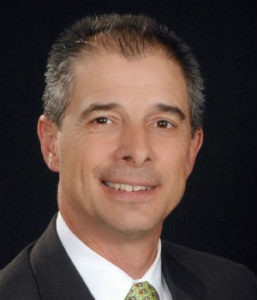 I’ve been doing battle with atheism for a while now. It’s mostly in my head. And it’s not really with atheists. I know a few atheists, and they’re mostly good folks – misguided about their religion, like the rest of us, but good folks.
I’ve been doing battle with atheism for a while now. It’s mostly in my head. And it’s not really with atheists. I know a few atheists, and they’re mostly good folks – misguided about their religion, like the rest of us, but good folks.
No, it’s their theology I have a beef with. You would think, as all-grown-up and sophisticated as it is (and if you don’t think it is, just ask an atheist), and since it’s all based on reason and tolerance and logic and understanding-in-all-things (did I say reason?), that consequently it would lack any of the marks of the religious fundamentalism it’s so snarky to dismiss as cultish, narrow-minded, judgmental.
It doesn’t. In fact, it shares a lot of those marks, especially the illogical non-sequiturs. Like “I prayed and it rained; therefore God loves me and made it rain (for-me)” sounds curiously like “Organized religion is too folksy and quaint and the church on the corner is not filled with open-minded sophisticates (like me); therefore there is no God.” Perfectly rational, right?
How about: “The Church has a shameful history of failure (unlike all the other organizations in the world, unsoiled as they are from human failure); therefore God does not exist.” No, there’s no mean-spirited, narrow-minded fundamentalism there!
Maybe it’s just me, but I hate getting lectured for being judgmental by – well, by that! I’m offended at the condescension, obvious and implied, that my theology – which is apparently all theology, since atheism doesn’t seem to know any difference in Free Will Baptists and Episcopalians, doesn’t seem to know the Academy was actually born in the Church and doesn’t seem ever to have encountered a thinking Christian – is all tribal fear and pre-scientific superstition.
I’ve read a good bit of atheism in the last few years as I’ve been doing this battle, mostly inside my own head. When I started (let me be honest), I was a little concerned: So, what if this makes sense? What if I am convinced there really is no God?
But the truth is that I’ve never heard a word that concerned me. Mostly it’s anger and righteous indignation. “Corrupt organization, stupid rules, incompetent leadership, power-hungry, fear-based, need to control. Rational conclusion: therefore, there is no God.”
(Let me take a quick breath here to agree with all the atheistic criticisms of organized religion: corrupt, incompetent, fear-based, power-hungry. Yes, yes, yes and yes. “Logical conclusion: therefore there is no God?” I’m sorry. I just don’t get it.)
“I don’t believe in the same God most atheists don’t believe in: the all-controlling ‘man upstairs.’”
But, I digress. Apparently there is an atheism that contemplates the actual nihilism of nothingness – maybe Sartre, Camus, etc. – but I hear none of that, the deeply considered theology and philosophy that actually brings one to the abyss of utter darkness. All I hear is bluster and anger. “The Church is bad. Therefore there is no God.”
Where’s the logic? Where’s the tolerance? Where’s the generosity? I dare not even mention humility. Where’s the appreciation for countless millions (even billions) of faithful people who are spurred to everyday decency by “love your neighbor” and “do unto others” and “the love of Christ urges me on”?
Has 21st-century atheism honestly never encountered a single decent, thoughtful, educated, kind, compassionate Christian? Yes, I’ve been doing battle with atheism for a while now.
But, I have to say, it has all made me wonder.
Some years ago Bishop John Shelby Spong, with his Why Christianity Must Change or Die tour, was coming to town, and the famous scientist and evangelical atheist, Richard Dawkins, was also in town for a lecture. In a radio interview, Dawkins was asked about Spong’s theology, to which he responded, “He’s an atheist, too. He just doesn’t know it yet.”
Really? Am I, also?
Like Spong, I’ve demythologized my theology, thrown out the ill-considered biblical literalism, abjured a lot of the prayers I hear as well-meaning but selfish attempts to manipulate the divine. And I’ve jettisoned an omnipotent God (who can do all things but mostly chooses not to). So, what’s left? Is my theology just a slippery slope to atheism? Am I an atheist, too?
Not by a long shot.
I don’t believe in the same God most atheists don’t believe in: the all-controlling “man upstairs” who capriciously acts in favor of the righteous (and, if you listen to some players and coaches, apparently on behalf of some football teams); who answers some prayers just not most of them; who mostly stands far removed from his earthly subjects, craving our obeisance and servitude and our groveling praise; who offers the ultimate reward to a blessed few and sends the rest to eternal punishment. No, I can say without shame that I no longer believe in that “God.”
But since when was that actually God?
The professors who trained me, the theologians I’ve read, the friends who share my profession, my own, observed experience with this world – and the scripture I now read with new eyes – all lead me to a different understanding altogether.
Mystery and myth, sacred wonder and awe, beauty and truth, inspiration and revelation, hope and purpose, meaning and love. There is more than this world can even dream of. I think some atheists could even believe that.
But what do I know? I’m just a “babdist” preacher.
